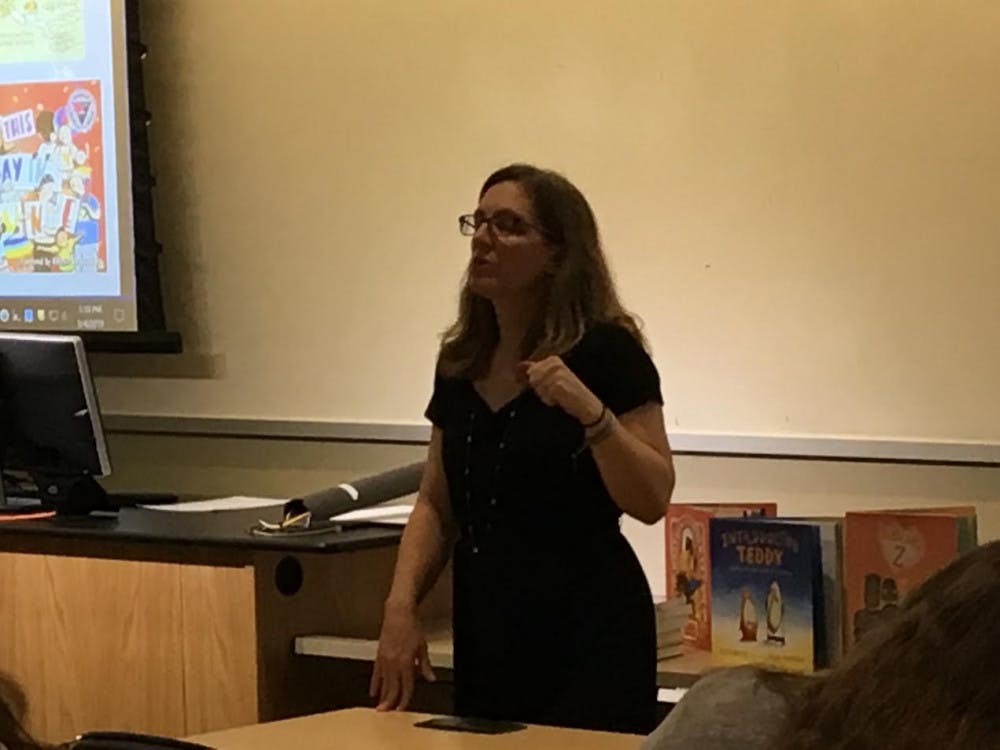By Reynaldo Torres Jr.
Correspondent
In today’s society, the LGBTQ+ community is represented in many ways. From popular shows like Netflix’s “Queer Eye” to nation-wide Pride Parades, the community is thriving in a way it hasn’t in a long time.
On Sept. 4, Emily Meixner led a workshop that focused on LGBTQ+ representation in children’s and YA literature in the Education Building Room 113.

Meixner, who works in the English department, first presented children’s books such as Andrea J. Looney’s “Bunnybear” and Christian Trimmer’s “Teddy’s Favorite Toy.”
“Bunnybear” follows the tale of a bear who identifies as a rabbit, while “Teddy’s Favorite Toy” is a story about a young boy named Teddy enjoys playing with a doll. In each of these stories, children are taught about identity, acceptance and kindness.
Within the last five years, books, such as “Bunnybear” and “Teddy’s Favorite Toy,” that include LGBTQ+ characters and defy gender norms, have seen an increase in popularity among students in fifth through eighth grade.
During the workshop, Meixner also discussed New Jersey laws that have been put in place to protect people from being discriminated against due to their sexual preference or identity.
“The laws are important because it makes schools safer and they prioritize school safety,” Meixner said. “But I am not sure that teachers are aware enough that these laws are out there and we are responsible to them.”
Meixner mentioned how these anti-discriminatory laws also fall in line with many schools’ anti-bullying policies.
“People who are going to be future teachers, think about what their school’s anti bullying policy looks like and how that might help them in shaping what curricular choices they make,” Meixner said.
Last year, New Jersey Gov. Phil Murphy signed a bill stating that from the 2020-2021 school year and onward, all schools in the state must teach LGBTQ+ history in a class, which Meixner appreciated, since more teachers will know about the issues.
Meixner also discussed the idea of LGBTQ+ history being taught in school and how teachers could do it.
“I think teachers are going to have different feelings addressing LGBT content,” Meixner said. “Some of them are going to feel totally familiar and totally comfortable with the idea, and some of them are just not.”
Meixner agreed that the workshop proved how important diversity in literature is.
“I was just really excited to see how much interest there was,” Meixner said. “The number of students who were here to just listen and learn was encouraging. It speaks to the interest and the necessity of knowing what these resources are.”







